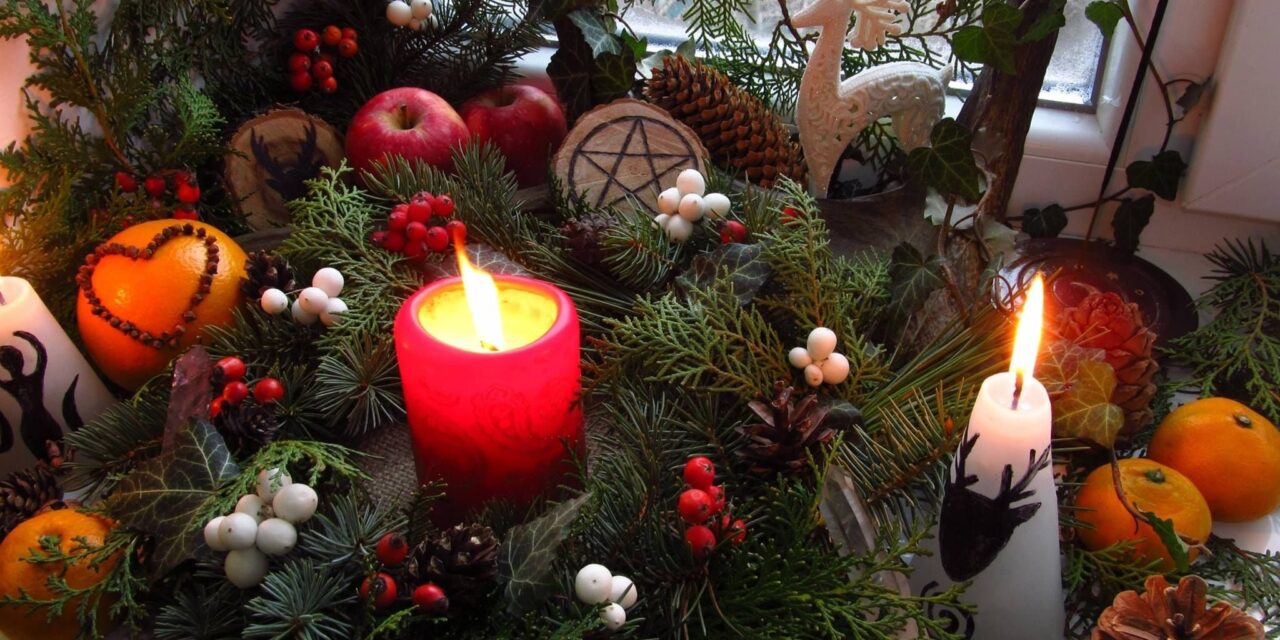Bah-humbug! Hail Krampus! Merry Yule! Christmas is upon us once again.
While cheery tunes, dazzling lights, and bustling shops are a source of joy for many, for others, Christmas can bring feelings of loneliness, anxiety, and isolation.
And it doesn’t take a Grinch to have an aversion to it. There’s even a named phobia for the fear of Christmas: Christougenniatikophobia.
Alienation and cultural overload
As society becomes increasingly secular and diverse, the mass celebration of a Christian holiday—without acknowledgement of other faiths, beliefs, and cultural practices—can be alienating.
The festive season, for some, is a reminder that not everyone shares the same customs or celebrations. Moreover, Christmas can intensify reminders of what’s missing—family members, dear friends or lost pets. For many, the relentless cheer of the season only highlights the absence of what they are grieving.
But perhaps the most notable issue with Christmas is the cultural overload, especially when it leans heavily into consumerism, religious dogma, and tradition.
Yet, it doesn’t have to be this way. The idea of an “alternative Christmas” can provide a refreshing way to reclaim the spirit of the season without the stress, exclusion, or commercialisation.

Krampus from Central European folklore
Reimagining the Spirit: A Shift Toward Inclusivity
Instead of focusing on traditional Christmas narratives, why not lean into other seasonal festivities that celebrate the cycle of nature, family, and community?
The Winter Solstice, or Yule, for instance, has deep roots in pre-Christian European traditions. It is a celebration of the return of the sun, the triumph of light over darkness, and a time for warmth, feasting, and merriment.
Krampus, the dark companion to St. Nicholas in Alpine folklore, can be part of this reimagined holiday, reminding us that darkness and light are two sides of the same coin. Krampus is a half-goat, half-demon monster from Central European folklore who punishes misbehaving children. Krampus parades are a unique cultural highlight of Germany’s festive season.
In broader historical context, Christmas was never just a celebration of Jesus’ birth; it has integrated elements from various cultures. The story of Jesus, a working-class hero born in a stable, is itself a reminder that Christmas wasn’t always about opulence and consumerism.
Jesus’ birth in humble circumstances resonates deeply with modern-day struggles of inequality. Similarly, ancient festivals like the worship of Mithras, the Roman god of the sun, shared customs with later Christmas traditions like gift-giving and feasting, proving that the season of renewal is older than Christianity itself.
Saint Nicholas and the Rise of Santa Claus
Saint Nicholas, a 4th-century Christian bishop known for his generosity, was the original inspiration for Santa. Over time, however, Saint Nicholas evolved into the plump, jolly Santa Claus we know today—a character popularised by commercial interests, particularly Coca-Cola’s famous holiday advertisements in the 1930s.
Christmas traditions have been shaped by social forces, often diverging from their original meanings to suit the needs of the time.
But even Santa’s story is about more than just gift-giving; it’s about the sense of joy that comes from the unexpected.
By shifting the narrative away from commercialism and focusing on meaningful acts of kindness, we can redefine the figure of Santa Claus as one who embodies goodwill, regardless of gifts.
Feasting, Warmth, and Community: The Heart of Winter
No matter how one celebrates or refrains from celebrating Christmas, we all crave warmth, light, and the bond of shared meals and laughter.
Winter, especially in its darkest days, calls for communal gatherings. Whether it’s Yule, Hanukkah, or any gathering of friends, sitting down to share food and stories is a universal need.
As the days grow shorter, we all seek light, whether in the form of a candle, a shared meal, or the laughter of those around us.
Alternative Christmas, then, is not about rejecting the holiday entirely, but reimagining it to resonate with individual beliefs, struggles, and joys.
By focusing on warmth, inclusivity, and the deeper meaning of this season—whatever form that takes—we can all find reasons to celebrate.
If you’re looking for ways to mark the festive period without focusing on the Christmas element, you could meet friends for a coffee and a catch up, attempt some winter crafts such as wreath making or try these simple Christmas hacks to make the season a little less stressful!




